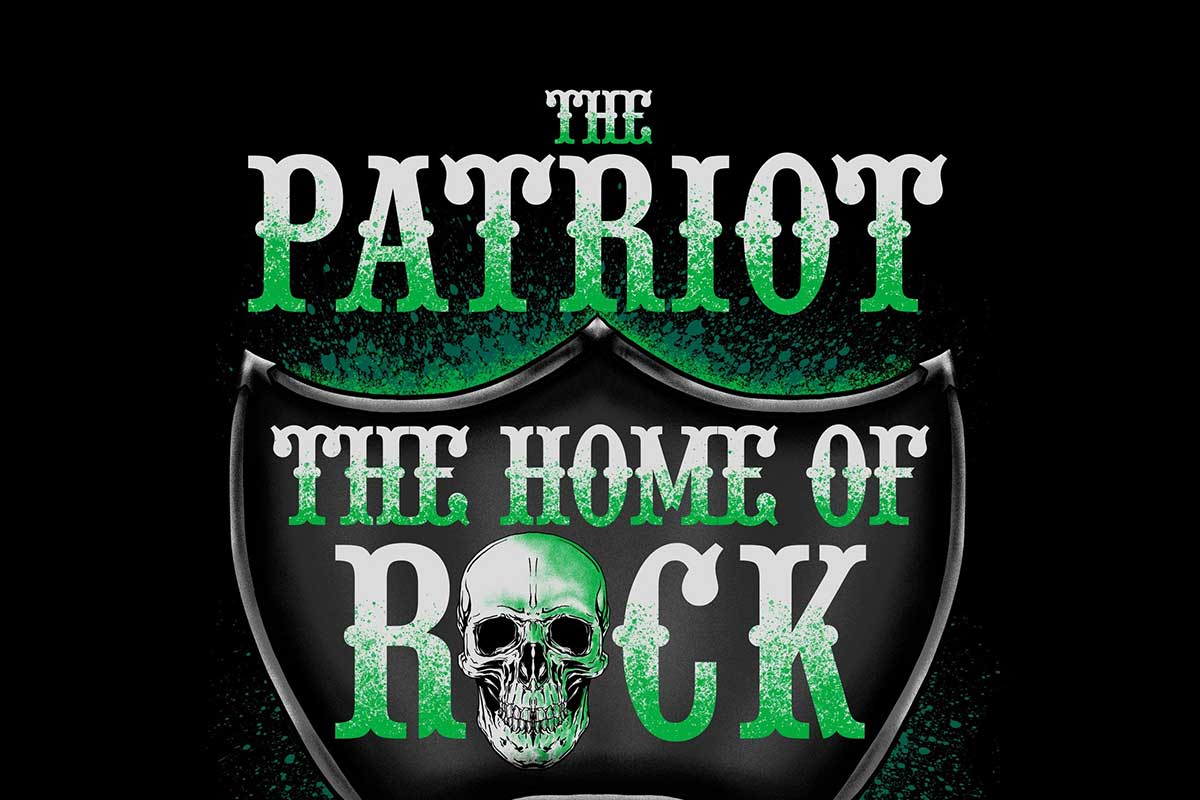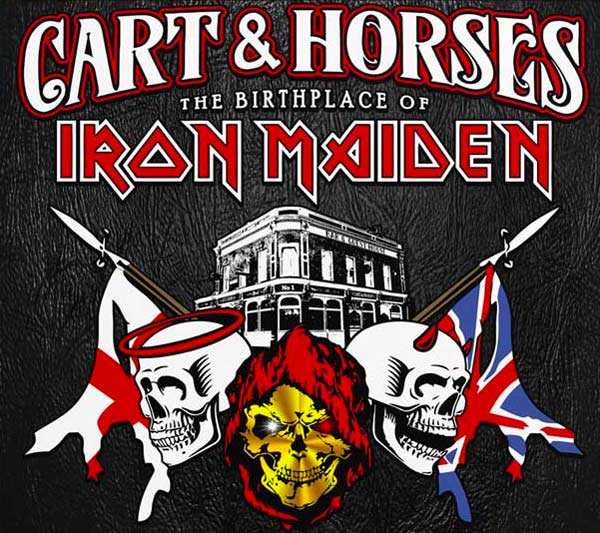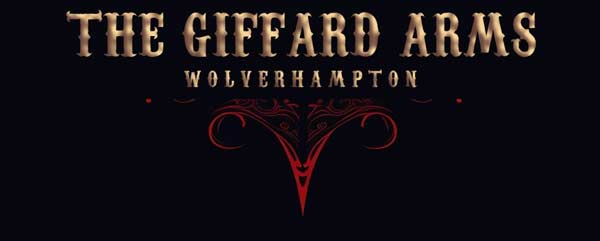Marcela Bovio started her musical journey when she was five. Her godfather pointed her parents towards some musical training for her and her sister, Diana. “I am so happy that he did because my parents love music, but they’re not really the musician type,” Marcela told MetalTalk’s Paul Monkhouse. “I think that recommendation really put us on our path.”
Had her godfather spotted some musical talent in Marcela? “Because I was so young, I don’t remember any of it, to be honest,” she said. “But my parents tell me that I had a strong connection with music ever since I was very, very little. But my godfather used to be the Director of the Conservatory in Monterey, where I’m from. I think he just thought that music was going to be great for everyone. I’m very happy that he did. His passion and enthusiasm was infectious. He is an amazing musician. One of those people that you can give him any musical instruments, and he will figure it out in a couple of hours.”
Marcela Bovio had her first real taste of the spotlight when she performed a solo at elementary school. Was that something she thought, ‘Oh, I like this’ with the applause and the attention? “I’m going to be cheeky and totally honest with you,” she smiles. “When we were doing that choir thing, another girl was doing the solo parts, and it wasn’t going all that great. I actually thought at that moment, ‘I’m just going to sing it out loud a little bit, and they will probably pick me’. And they did. That’s horrible, isn’t it? She showed ambition and everything but really was struggling.”
Following that, aged seventeen, Marcela joined a band that played covers and she started off as a bass player. “At the first couple of rehearsals, there was a bass guitar lying around and no one there to play it,” she says. “So, I played it, and then they figured out that I could sing, and I got promoted.”
An ideal move. You wonder if Marcela wanted to become a vocalist, or was this slotting in where she was needed? “That’s funny because if I think about it, I knew I loved to sing,” she says. “That’s the only thing that I can remember. But I don’t remember coming up with the idea of myself… should I make a band or whatever? I think that moment just sort of happened.”

Marcela’s music experience grew and grew. She learned to play the violin and got quite involved in the classical side. But there was an ear for rock and Metal to come as well. That must have been an interesting mix. “I actually grew around classical music because of these lessons that I had when I was growing up,” Marcela says. “So, you could say that I listened to that mostly. Whenever we were driving with my dad in the car, he would play classical music. So, of course, when you’re in high school, you listen to some other stuff.
“I started getting into rock bands and alternative rock bands and then later on to Metal. I think that there is definitely a certain overlap in emotion and drive in both classical and Metal music. The first things that I really fell for in Metal were Doom and Symphonic.
“I remember the very first Metal tracks that I heard were these Dutch bands called Celestial Season and Doom. This is funny because now I live here. They had two violins, and it was very beautiful, very sorrowful music. I was like, I’m home.”
I suggest there is such a connection between classical and Heavy Metal. You have big, bombastic stuff full of drama like Wagner, and Four Seasons by Vivaldi has this range of highs and lows that bands like Led Zeppelin really tapped into, sharing that sense of dynamics.
“Exactly,” Marcela says. “That’s also a very common point and very different to what, for instance, you hear on the radio, which is way more constricted in form but also in the emotional spectrum. That’s also what I love about Metal. It can be super happy or it can be extremely sad and angry. It can be anything that you want it to be.”

Marcela Bovio would form Hydra. “It was initially a duo,” she says, “and then became more of a full band. Then I had this idea that we should make music that is doomy and progressive. We started writing our own songs and trying out things. Those were a lot of fun.”
Elfonia came along in 2001. Two years after forming, their debut album was out. What was that like having an album available? “Oh, I remember it as if it was yesterday,” Marcela says, “because this was something that we had been working on for so long. Back then, we didn’t have all the computers to record at home and stuff.
“We literally broke our piggy banks so that we could put all our little pesos together and play for a couple of days at the studio. We wanted it to be recorded at the highest quality that we could. It was such an endeavour and felt like such a huge thing. So when it was finally ready, it was like, oh, this is so great.”
What was the music scene in Mexico like back then? Has there been changes and progression over time? “To be honest, I am not so in touch anymore with what’s going on right now over there,” Marcela says. “But I do remember that Metal, like we were trying to do, wasn’t really huge. Especially where I come from, which is the northeast. There was also very little of an alternative scene. I think there has definitely been growth throughout the years, and there’s a way more diverse spectrum of bands coming out of the city. So that’s cool.”
Obviously, Marcela Bovio could have been a very big fish in a small pond as one of the few Metal bands in Monterey. She had to work in a scene that wasn’t supported as much as it could have been at the time. Was that an issue? “It was,” she says. “We did a lot of searching, and we did a lot of shows with all different kinds of bands, alternative rock and very different vibes. We did have a very small following, but it was hard to find an audience for it. It was so different to what everybody else was doing over there.”
Around about the same time that the debut came out, Arjen Lucassen (Ayreon) appeared in Marcela’s life. He was looking for a female singer for a new project. The whole process of Marcela getting the role was extraordinary. “We had just released the first album,” she says. “We all knew of Arjen. A friend of mine told me he had this contest on his website. He was trying to give someone unknown the chance to play one of the roles in his next rock opera.
“My friend said I should send them my album. I replied, ‘Oh man, come on, he’s not gonna pick me.'”
Marcela’s friend convinced her to send the album. “Two weeks later, I got this email from Arjen telling me, ‘Oh, my God, I love your album. I have goosebumps. Your music and your voice are so beautiful’. It was unbelievable.
“I think he was choosing between me and two other girls, so he did make it a little bit difficult for me. He made me sing a lot of different things. I eventually convinced him and ended up flying to The Netherlands and recording on The Human Equation. A lot of crazy history happened afterwards.
“But I think it was good. It was also a great experience, and I practised so much before I went to the studio with him. But I was pleasantly surprised because he makes you feel very, very comfortable in the studio. I think all of the singers he has worked with will say the same. He brings the very best out of you. What I did back then, I think, oh, wow, that was amazing. With what I knew back then, it’s incredible, isn’t it?”
This was Marcela’s first trip to The Netherlands. Did she have an idea that she would end up living there? “No,” she says. “It was all super crazy from then on because after The Human Equation was released, he asked me to write an album with him. That ended up becoming the first Stream Of Passion album, which was already beyond my wildest expectations.
“I somehow convinced him we should go on tour, which is even more extraordinary. Especially for him, who doesn’t really enjoy touring anymore. So, yeah, I have no clue how I managed to end up there.”
I first heard Marcela Bovio when I bought Stream Of Passion’s album Embrace the Storm in 2005. “That initially came out, Jesus…yeah, 18 years ago,” she says.
That was an interesting recording process, too. Marcela was back in Mexico and recorded her vocals there. Everyone recorded most of their parts remotely. “Yeah, that’s true because the whole rhythm section was Dutch,” Marcela says. “So, drums, bass guitar, that could all be done here in The Netherlands. Then, Lori Linstruth was still living in Sweden, and she recorded most of the guitar solos over there. I did some vocals in Mexico and some in The Netherlands.
“I flew back here at some point to record a video clip. It looks crazy, but I did love the fact that we wrote everything remotely because they would send me a song idea, with me not knowing at all what to expect. Then, I would record something. I would send it back, but have no idea what to expect. I think it made for a very interesting album. They were all throwing in ideas, and you would pass that idea to someone else, and they would build on that.”
We talked about the process of collaborating remotely. “I think it’s very interesting,” Marcela says, “because if you’re running with someone face to face, you will, I think, end up compromising some things sooner. The way you send something around, it’s like, ok, this is it. There is less back and forth, so, in a way, there is less compromise. Which I thought was very, very interesting.
“You do tend to bow a little bit to that person. You don’t want to step on toes. Maybe they have a vision about the whole thing, but that doesn’t let you have your own creative input into it. I think somehow, this way, all of our ideas had more integrity, like fusing with each other in a way. It’s very unusual but, again, also very, very interesting.”
There has been a reunion with Stream Of Passion. Some shows happened, and they were in the studio recording. “It was incredible,” Marcela says. “We had been gone for six years. To be back, we had the warmest, most amazing welcome. We had people from 26 different countries coming over to see us here in The Netherlands. The shows were super fun. Afterwards, we would go talk to the audience. The amount of joy that I experienced in those moments is just unparalleled. So many people came to me saying, ‘I’ve loved you guys for so long, and I thought I would never see you live…and now I did’. So many hugs and it was just so nice.”
Did Marcela pick up where she left off? The band went into hiatus in 2016. Was it like she almost felt like she had just seen them five minutes ago in a way? “Yes,” she says. “Musically, we had to get the engine started. So, we needed a few rehearsals, but the atmosphere and the camaraderie and everything was immediately back on track.
“So that was nice, but also with the added fact that we hadn’t seen each other in a really long time. Then you have all this catching up, and I think, in a way, we’re all a little bit more grown-up. A little bit more mature. I don’t know. It’s just very nice.”

During that hiatus, Marcela Bovio was constantly busy. There was MaYaN, maybe an odd project because it’s Symphonic Death Metal. I recently saw a really amusing video Marcela put on YouTube where, in practising, she was doing both sets of vocals, the Death Metal ones and hers. “It’s just so much fun,” she says. “I mean, if you listen to the music, it’s a little bit nuts. Everything is happening all at once, and there are a lot of unexpected twists and turns, which I love, actually. Because part of my heart will always stay true to progressive rock and Metal, which I adore.”
“It’s also such a brilliant group of people, and I think anyone that has been to a MaYaN live show will agree with me. It’s just a party, and there is so much going on onstage. We’re all having such a stupidly good time that it’s just so much fun.”
It is incredibly interesting that Marcela joined this Symphonic Death Metal band. Also, with no barriers or limits to her solo music, she always stretches herself. I ask if the classical Unprecedented album and the follow-up Unprecedented – The Piano Sessions were both recorded live in one take virtually. What made her go down that route?
“Well, with Unprecedented, I knew that there basically wasn’t just gonna be any other option because I recorded it with a very classical string quartet,” she says. “I wanted them because they’re just excellent at what they do. One of their requirements for accepting to do this project with me was ‘ok, well, we’re not going to play to a Metronome track’. I said, ‘That’s great, I agree’.”

“But that meant that we had to do everything together to really get it right. I love that because if I listen to it, of course, there are things that went a little wrong and things that are a little bit unpolished. The vocals, for my feeling, could have sounded better here and there. But it is what it was. It’s the image of that moment, and yeah, gosh, I’m still super proud of that album because it was such an endeavour and something completely different to anything that I had done before.”
MarcelaBovio.com – patreon.com/MarcelaBovio
You can read Part Two of the interview with Marcela Bovio here.






